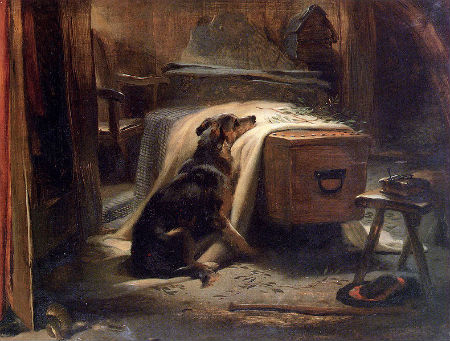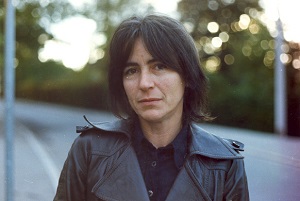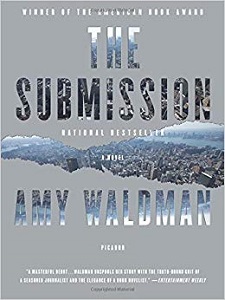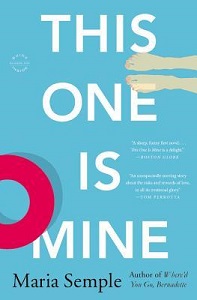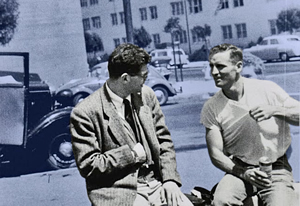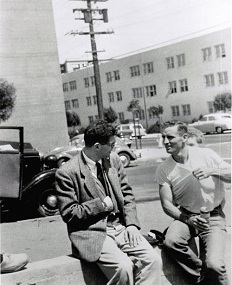De Amerikaanse schrijver John Grisham werd geboren in Jonesboro, Arkansas, op 8 februari 1955. Zie ook alle tags voor John Grisham op dit blog.
Uit: The Reckoning
“On a cold morning in early October of 1946, Pete Banning awoke before sunrise and had no thoughts of going back to sleep. For a long time he lay in the center of his bed, stared at the dark ceiling, and asked himself for the thousandth time if he had the courage. Finally, as the first trace of dawn peeked through a window, he accepted the solemn reality that it was time for the killing. The need for it had become so overwhelming that he could not continue with his daily routines. He could not remain the man he was until the deed was done. Its planning was simple, yet difficult to imagine. Its aftershocks would rattle on for decades and change the lives of those he loved and many of those he didn’t. Its notoriety would create a legend, though he certainly wanted no fame. Indeed, as was his nature, he wished to avoid the attention, but that would not be possible. He had no choice. The truth had slowly been revealed, and once he had the full grasp of it, the killing became as inevitable as the sunrise.
He dressed slowly, as always, his war‑wounded legs stiff and painful from the night, and made his way through the dark house to the kitchen, where he turned on a dim light and brewed his coffee. As it percolated, he stood ramrod straight beside the breakfast table, clasped his hands behind his head, and gently bent both knees. He grimaced as pain radiated from his hips to his ankles, but he held the squat for ten seconds. He relaxed, did it again and again, each time sinking lower. There were metal rods in his left leg and shrapnel in his right.
Pete poured coffee, added milk and sugar, and walked outside onto the back porch, where he stood at the steps and looked across his land. The sun was breaking in the east and a yellowish light cast itself across the sea of white. The fields were thick and heavy with cotton that looked like fallen snow, and on any other day Pete would manage a smile at what would certainly be a bumper crop. But there would be no smiles on this day; only tears, and lots of them. To avoid the killing, though, would be an act of cowardice, a notion unknown to his being. He sipped his coffee and admired his land and was comforted by its security. Below the blanket of white was a layer of rich black topsoil that had been owned by Bannings for over a hundred years. Those in power would take him away and would probably execute him, but his land would endure forever and support his family.
Mack, his bluetick hound, awoke from his slumber and joined him on the porch. Pete spoke to him and rubbed his head.
The cotton was bursting in the bolls and straining to be picked, and before long teams of field hands would load into wagons for the ride to the far acres. As a boy, Pete rode in the wagon with the Negroes and pulled a cotton sack twelve hours a day. The Bannings were farmers and landowners, but they were workers, not gentrified planters with decadent lives made possible by the sweat of others.”

John Grisham (Jonesboro, 8 februari 1955)
De Nederlandse dichter, songwriter en musicus Robin Block werd geboren op 8 februari 1980 in Heemskerk. Zie ook alle tags voor Robin Block op dit blog.
Archeoloog van de verbeelding
Geef me een steen, één steen
en ik bouw een paleis dwars door de tijden heen
Vul de oude tuin met geuren
Geef me een rots, een letter
en ik bikkel een gezicht uit
droom er een naam bij
Ik hoor de kreten van mijn voorvaderen
al van meters onder de grond,
Volg het spoor naar hun zanderige mond
Ik blaas silhouetten uit het stof
Draag hun botten door de uitgegraven straten
Zoek een oog voor hun tranen
Hele wat geheeld moet worden
7 generaties voor ons
en 7 erna
Ik lijm de scherven tot een lichaam
Vang in elke barst een lichtstraal
Ontdek in ieder mozaïek een kleurige processie
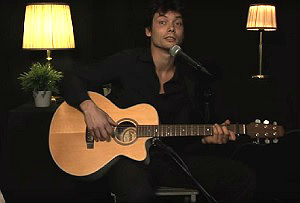
Robin Block (Heemskerk, 8 februari 1980)
De Canadese schrijfster Rachel Cusk werd geboren op 8 februari 1967 in Saskatoon. Zie ook alle tags voor Rachel Cusk op dit blog.
Uit: Transit
“An astrologer emailed me to say she had important news for me concerning events in my immediate future. She could see things that I could not: my personal details had come into her possession and had allowed her to study the planets for their information. She wished me to know that a major transit was due to occur shortly in my sky. This information was causing her great excitement when she considered the changes it might represent. For a small fee she would share it with me and enable me to turn it to my advantage.
She could sense—the email continued—that I had lost my way in life, that I sometimes struggled to find meaning in my present circumstances and to feel hope for what was to come; she felt a strong personal connection between us, and while she couldn’t explain the feeling, she knew too that some things ought to defy explanation. She understood that many people closed their minds to the meaning of the sky above their heads, but she firmly believed I was not one of those people. I did not have the blind belief in reality that made others ask for concrete explanations. She knew that I had suffered sufficiently to begin asking certain questions, to which as yet I had received no reply. But the movements of the planets represented a zone of infinite reverberation to human destiny: perhaps it was simply that some people could not believe they were important enough to figure there. The sad fact, she said, is that in this era of science and unbelief we have lost the sense of our own significance. We have become cruel, to ourselves and others, because we believe that ultimately we have no value. What the planets offer, she said, is nothing less than the chance to regain faith in the grandeur of the human: how much more dignity and honor, how much kindness and responsibility and respect, would we bring to our dealings with one another if we believed that each and every one of us had a cosmic importance? She felt that I of all people could see the implications here for improvements in world peace and prosperity, not to mention the revolution an enhanced concept of fate could bring about in the personal side of things. She hoped I would forgive her for contacting me in this way and for speaking so openly. As she had already said, she felt a strong personal connection between us that had encouraged her to say what was in her heart.
It seemed possible that the same computer algorithms that had generated this email had also generated the astrologer herself: her phrases were too characterful, and the note of character was repeated too often; she was too obviously based on a human type to be, herself, human. As a result her sympathy and concern were slightly sinister; yet for those same reasons they also seemed impartial.”
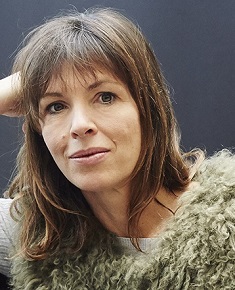
Rachel Cusk (Saskatoon, 8 februari 1967)
De Amerikaanse dichteres en schrijfster Elizabeth Bishop werd geboren op 8 februari 1911 in Worcester, Massachusetts. Zie ook alle tags voor Elizabeth Bishop op dit blog.
Songs For A Colored Singer
II
The time has come to call a halt;
and so it ends.
He’s gone off with his other friends.
He needn’t try to make amends,
this occasion’s all his fault.
Through rain and dark I see his face
across the street at Flossie’s place.
He’s drinking in the warm pink glow
to th’ accompaniment of the piccolo.
The time has come to call a halt.
I met him walking with Varella
and hit him twice with my umbrella.
Perhaps that occasion was my fault,
but the time has come to call a halt.
Go drink your wine and go get tight.
Let the piccolo play.
I’m sick of all your fussing anyway.
Now I’m pursuing my own way.
I’m leaving on the bus tonight.
Far down the highway wet and black
I’ll ride and ride and not come back.
I’m going to go and take the bus
and find someone monogamous.
The time has come to call a halt.
I’ve borrowed fifteen dollars fare
and it will take me anywhere.
For this occasion’s all his fault.
The time has come to call a halt.
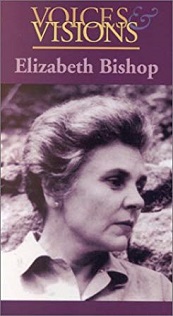
Elizabeth Bishop (8 februari 1911 – 6 oktober 1979)
Cover
De Amerikaanse schrijver Neal Cassady werd geboren op 8 februari 1926 in Salt Lake City. Zie ook alle tags voor Neal Cassady op dit blog.
Uit: Collected Letters
“TO ALLEN GINSBERG
May 8, 1947 1242 Clarkson St. [Denver]
DEAR ALLEN; Can you ever forgive me? I mean it, can you? Really, I feel very guilty about my failure to write; of course, I could rationalize myself indefinitely concerning all the lack of time I’ve had, troubles etc., however, I shan’t do that for I should have written anyhow. The real reason I’ve failed to is, I think, due to my not knowing what would happen next. As I received your last letter I was packing to go to Las Vegas & gamble. Quickly I dashed off a letter telling you so, & the reasons why, then, before I mailed it, I had a minor brush with the police which, incidentally, caused me to move to this address. This change in plans voided my unmailed letter, so I started another, but just then I got a job, and I mean a job! Honestly, I work ten hours a day and it’s so hard on me that even after ten days at it, I can still hardly drag myself home to fall into bed. I have not done anything, haven’t seen Justin, (although I phoned him two weeks ago and made a date), haven’t seen Hal, haven’t even written to you, man, I’ve been beat into the ground by this hard work; enough of these excuses, onward. Your last letter was a pip, truly the best you’ve written; insofar as the groove we’ve been striving for it’s perfect. I feel as I reread it that you’re right in there, now all we need is for me to fall into it properly. Of course, you’ve forgotten most of what you wrote but that’s not important. You’re in!
I must repeat the jobs I suggested as Justin’s best are only what I think, as far as I know he might make you vice-president, so try not to feel any drag, and about all remember, he’s fallen for you hook, line and whatever else he has; I’m quite convinced that you are, by far, the most important and best loved thing that has happened to him in years, so during the summer really bear down on him and where he’ll now eat out of your hand, then he’ll even feed you out of his. If it means anything. I swear I’ll see Justin before the week’s out and then write to you on the “whole thing in general” whatever I meant by that.”
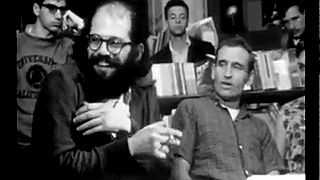
Neal Cassady (8 februari 1926 – 4 februari 1968)
Hier met Allen Ginsberg (links)
De Amerikaanse schrijver Henry Roth werd geboren op 8 februari 1906 in Tysmenitz nabij Stanislawow, Galicië, in het toenmalige Oostenrijk-Hongarije. Zie ook alle tags voor Henry Roth op dit blog.
Uit: Mercy of a Rude Stream (A Diving Rock on the Hudson)
“They, and other Jewish youth, more recent arrivals on the block, or in the immediate neighborhood, became, as it were by default, Ira’s provisional companions during that barren, that grievous period. Izzy (who became Irving) Winchel, with blanched blue eyes, a hooked nose, had aspirations of becoming a baseball pitcher. Utterly unscrupulous, the nearest thing to a pathological liar, and phony as a three-dollar bill; his arrant cribbings and copyings still hadn’t saved him from flunking out of Stuyvesant. He did peculiar things with words: mayonnaise became maysonay, trigonometry trigonomogy. Maxie DaM, short of stature, quick, alert, well-informed, best-spoken of any in the group (perhaps because his family had moved here from Ohio), ambitious, an office boy in an advertising firm, and Ira was sure a capable one. Maxie DaM’s father, blocky and affable, owned the new candy store, whose rear was depot for card games. Jakey Shapiro, short of stature and motherless; his short and cinnamon-mustached widowed father had moved here from Boston, married svelte Mrs. Glott, gold-toothed widow, mother of three married daughters, and janitress of 112 East 119th. It was in her abode, in the janitorial quarters assigned her on the ground floor rear, that seemingly inoffensive Mrs. Shapiro set up a clandestine alcohol dispensary—not a speakeasy, but a bootleg joint, where the Irish and other shikkers of the vicinity could come and have their pint bottles filled up, at a price. And several times on weekends, when Ira was there, for he got along best with Jake, felt closest to him, because Jake was artistic, some beefy Irishman would come in, hand over his empty pint bottle for refilling, and after greenbacks were passed, and the transaction completed, receive as a goodwill offering a pony of spirits on the house. And once again those wry (rye? Out vile pun!), wry memories of lost opportunities: Jake’s drab kitchen where the two sat talking about art, about Jake’s favorite painters, interrupted by a knock on the door, opened by Mr. Shapiro, and the customer entered. With the fewest possible words, perhaps no more than salutations, purpose understood, negotiations carried out like a mime show, or a ballet: ecstatic pas de deux with Mr. McNally and Mr. Shapiro—until suspended by Mr. Shapiro’s disappearance with an empty bottle, leaving Mr. McNally to solo in anticipation of a “Druidy drunk,” terminated by Mr. Shapiro’s reappearance with a full pint of booze. Another pas de deux of payment? Got it whole hog—Mr. Shapiro was arrested for bootlegging several times, paid several fines, but somehow, by bribery and cunning, managed to survive in the enterprise, until he had amassed enough wealth to buy a fine place in Bensonhurst by the time “Prohibition” was repealed. A Yiddisher kup, no doubt.”
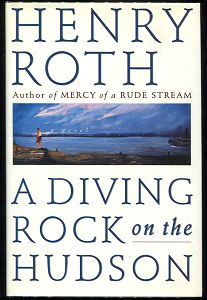
Henry Roth (8 februari 1906 – 13 oktober 1995)
Cover
De Duitse dichteres en schrijfster Eva Strittmatter werd als Eva Braun geboren op 8 februari 1930 in Neuruppin. Zie ook alle tags voor Eva Strittmatter op dit blog.
Das Geheimnis
Dort,wo du bist:schreib ein paar Worte
In deinen Himmel.Schick sie her.
Ich fang sie auf an meinem Orte
Und sende sie,von Liebe schwer,
Zu dir zurück.In dieser Zeile
Wird unser Leben sich verbinden:
Geheimnis,das ich mit dir teile.
Und keiner wird die Lösung finden
Für dieses Rätsel im Gedicht.
Die andern sollen dran erblinden:
So sehr ist es gemacht aus Licht.
Schrei
Andre gibt es, die können die Kunst
Zu leben besser als ich.
Ich weiß nicht: Ist das eine Gunst Des Schicksals?
Ich weiß nur: Auf mich
Fällt alles mit Gewalt herab.
Wie ein Steinschlag trifft mich das Glück.
Und Unglück ist für mich das Grab.
Ich stürze ins Nichts zurück.
Der Preis ist hoch, den ich bezahl
Für die Fähigkeit zu sagen. Ich muß das Glück und auch die Qual
Bis an den Schrei ertragen.
Sein
Ich sehne mich sehr nach Freiheit.
Leicht und im Licht möcht ich sein.
Ich will sie, wies sein soll, verdienen:
Arbeiten. Aber auch: einfach sein.
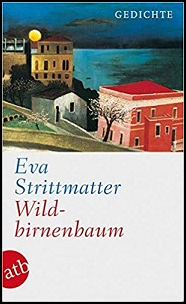
Eva Strittmatter (8 februari 1930 – 3 januari 2011)
Cover
De Oostenrijkse dichter en schrijver Gert Jonke werd geboren op 8 februari 1946 in Klagenfurt. Zie ook alle tags voor Gert Jonke op dit blog.
Uit: Geometrischen Heimatroman
„Der Dorfplatz ist viereckig, grenzt an die um ihn versammelten Häuser, Straßen und Wege münden in ihn, außer dem Brunnen in der Mitte, in dem die Pflastersteinsysteme ihren Ursprung suchen, strahlen-artig sich verteilen, befindet sich nichts auf dem Dorf-platz. Eine auf den Platz hingeworfene Figur nähen sich dem Brunnen, schöpft Wasser, daß die Winde knarrt; sie wendet sich vom Brunnen ab, den Krug am Kopf, verschwindet in einer Seitengasse. Oder aber an den Rändern die vier Hausmauerlinien entlang die einander austauschenden Vorminagsbesuche, die sich rasch hinter den Türen verbergen, in den Türspalten verschwinden Haare und Kopftücher. Zu Mittag dann tummeln sich einige herum, die Kinder kommen aus der Schule, werfen Mützen und Schul-taschen über die Dächer, der Lehrer geht ins Wirtshaus, der Pfarrer schließt das Fenster. – Wir können über den Dorfplatz gehn. – Ja, gehn wir über den Dorfplatz. – Ausgenommen den Brunnen in der Mine ist der Dorf-platz ansonsten leer. Nein, das ist nicht wahr, denn es sind Bänke aufgestellt entlang den Rändern, die Rückseiten der Lehnen zu den Mauern gewandt. Wir hatten uns in der Werkstatt des Schmiedes versteckt, die Wangen eng an die Mauern gepreßt, niemand hat uns geschn, und du hast gesagt – gehn wir über den Dorfplatz. – Nein, gehn wir nicht über den Dorfplatz, habe ich entgegnet, denn ich habe die Leute auf den Bänken sitzen gesehn auf einmal wie hingeworfen plötzlich auf jeder Bank zwei. Wir konnten nicht über den Dorfplatz gehn, weil wir nicht gesehen werden durften. – Gehn wir über den Dorfplatz. – Wir können nw&: über den Dorfplatz gebn, habe ich noch einmal gesagt, währenddem hat sich die erste auf der ersten uns am nächsten liegenden Bank sitzende Figur erhoben, wäh-rend sich die auf jener der ersten Bank gegenüberstehen-den Bank sitzende Figur ebenfalls erhoben hat, dann sind sie einander entgegengegangen, auf der den Dorfplatz teilenden Mittellinie begegnet, haben ihre rechten Hände gehoben, deren Handflächen einander zugestreckt, umschlossen, auf und ab geschüttelt, gelöst, sich voneinander wieder abgewandt, sind zu ihren Bän-ken zurückgegangen, haben sich wieder gesetzt, während die zweite auf der ersten uns am nächsten liegenden Bank sitzende Figur sich erhoben hat, während die auf jener der ersten Bank gegenüberstehenden Bank sitzende zweite Figur sich ebenfalls erhoben hat, dann sind sie einander entgegengegangen … … bis alle auf den einander gegenüberstehenden Bänken gegenübersitzenden Figuren sich erhoben hatten, einander entgegengegangen waren, die Hände einander geschüttelt hauen, zu den jeweiligen Bänken zurückgegangen waren und sich wieder gesetzt hatten.“
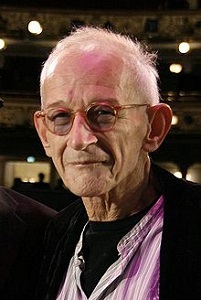
Gert Jonke (8 februari 1946 – 4 januari 2009)
De Franse schrijver Jules Verne werd geboren in Nantes op 8 februari 1828. Zie ook alle tags voor Jules Verne op dit blog.
Uit: Les Révoltés de la Bounty
“Pas le moindre souffle, pas une ride à la surface de la mer, pas un nuage au ciel. Les splendides constellations de l’hémisphère austral se dessinent avec une incomparable pureté. Les voiles de la Bounty pendent le long des mâts, le bâtiment est immobile, et la lumière de la lune, pâlissant devant l’aurore qui se lève, éclaire l’espace d’une lueur indéfinissable.
La Bounty, navire de deux cent quinze tonneaux monté par quarante-six hommes, avait quitté Spithead, le 23 décembre 1787, sous le commandement du capitaine Bligh, marin expérimenté mais un peu rude, qui avait accompagné le capitaine Cook dans son dernier voyage d’exploration.
La Bounty avait pour mission spéciale de transporter aux Antilles l’arbre à pain, qui pousse à profusion dans l’archipel de Tahiti. Après une relâche de six mois dans la baie de Matavaï, William Bligh, ayant chargé un millier de ces arbres, avait pris la route des Indes occidentales, après un assez court séjour aux îles des Amis.
Maintes fois, le caractère soupçonneux et emporté du capitaine avait amené des scènes désagréables entre quelques-uns de ses officiers et lui. Cependant, la tranquillité qui régnait à bord de la Bounty, au lever du soleil, le 28 avril 1789, ne faisait rien présager des graves événements qui allaient se produire. Tout semblait calme, en effet, lorsque tout à coup une animation insolite se propage sur le bâtiment. Quelques matelots s’accostent, échangent deux ou trois paroles à voix basse, puis disparaissent à petits pas.
Est-ce le quart du matin qu’on relève? Quelque accident inopiné s’est-il produit à bord ?
« Pas de bruit surtout, mes amis, dit Fletcher Christian, le second de la Bounty. Bob, armez votre pistolet, mais ne tirez pas sans mon ordre. Vous, Churchill, prenez votre hache et faites sauter la serrure de la cabine du capitaine. Une dernière recommandation : Il me le faut vivant !»
Suivi d’une dizaine de matelots armés de sabres, de coutelas et de pistolets, Christian se glissa dans l’entrepont; puis, après avoir placé deux sentinelles devant la cabine de Stewart et de Peter Heywood, le maître d’équipage et le midshipman de la Bounty, il s’arrêta devant la porte du capitaine.”
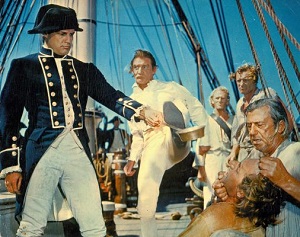
Jules Verne (8 februari 1828 – 24 maart 1905)
Scene uit de film “Mutiny On The Bounty” uit 1962 met o.a. Marlon Brando als Fletcher Christian
Zie voor nog meer schrijvers van de 8e februari ook mijn blog van 8 februari 2018 en ook mijn twee blogs van 8 februari 2015.







